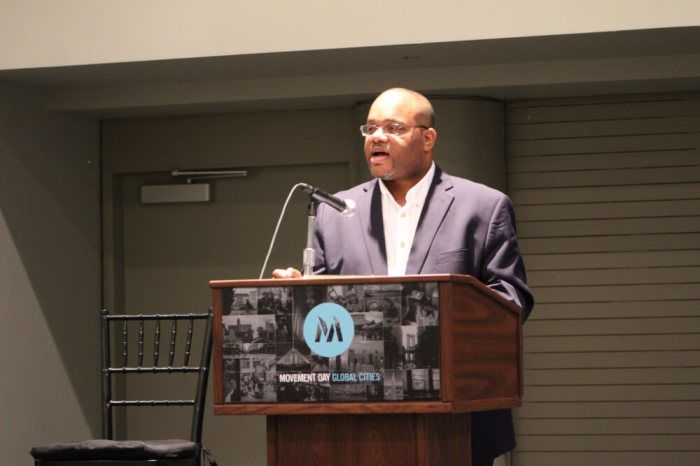Less Than Half of Practicing Christians Read Their Bible and the Rest of America Is Even Worse

NEW YORK — Despite its enviable record as the most printed and sold book in the world over the last five decades, less than half of practicing Christians in the U.S. spend serious time engaging with their Bible, according to the American Bible Society, and the rest of the country is even worse.
In a presentation at the Movement Day Global Cities conference at the Jacob Javits Center last Wednesday, Samuel Harrell, director of Project Ignition at the American Bible Society, presented evidence gathered from a six-year assessment of the state of the Bible conducted by the Barna Group which shows that just 18 percent of the American population 18 years and older in general reads the Bible. Of the practicing Christians in that group, only 37 percent engage with their Bible.
"We have been having the honor of walking for a number of years with Barna Group and studying the state of the Bible in America. I know that you and I are feeling the change in the winds and the trends that are affecting us, so you probably had conversations about just what feels very real about the Bible in our culture," Harrell said.
In Eat This Book, Eugene Peterson describes Scripture engagement as a relational process.
"What I mean to insist upon is that spiritual writing — Spirit-sourced writing — requires spiritual reading, a reading that honors words as holy, words as a basic means of forming an intricate web of relationships between God and the human, between all things visible and invisible," he writes.
And in his book, The Fire of the Word, Chris Webb agrees.
"When we open the Bible, it does not say to us, 'Listen: God is there!' Instead, the voice of the Spirit whispers through each line, 'Look: I am here!'" Webb explains.
Fergus Macdonald of the Taylor University Center for Scripture Engagement told Bible Gateway: "It is the Holy Spirit who enables the text to speak for itself; when the text speaks it is the voice of God the Father that is heard; and it is Jesus Christ who through the text makes a unique claim upon the readers and hearers."
According to Harrell, the study of the last six years of the state of the Bible also showed that only 38 percent of Americans considered themselves friendly toward the Bible.
Among those who said they read the Bible, 14 percent are men and 22 percent are women. Broken down by age, millennials are the least engaged with their Bible representing just 12 percent of the Bible readers while older adults, the largest age group, clocked in at 26 percent.
When it comes to Bible engagement by race, African-Americans lead the pack at 29 percent followed by whites at 17 percent and Hispanics account for 15 percent.
Among the 38 percent of Americans who consider themselves friendly to the Bible, both men and women expressed an almost equal amount of friendliness at 37 and 39 percent, respectively. Among the Bible friendly group of Americans, 38 percent identified as millennials, 46 percent as black, 46 percent as Hispanic, while 36 percent identified as white.
A whopping 62 percent of Americans said, however, that they want to read the Bible more, according to Harrell, but there are challenges to this, particularly when it comes to millennials.
"Millennials, they are reading you and me. Millennials are looking at us, millennials are saying, hey, one fourth of millennials are skeptics. There are those who are indicating that not only do they not believe the Bible, but they categorize the Bible as just another book or fairytale. But they also voiced opposition to the Bible and consider it a dangerous book," Harrell said.
Despite the challenges, said Harrell, millennials are likely to engage more with their Bible when they see the sacred book's impact on the lives of others.
"As one of our experts at ABS says, the number one reason millennials give for increasing their Bible reading is its impact on someone else. Think about that," said Harrell. "What are they saying?"




























